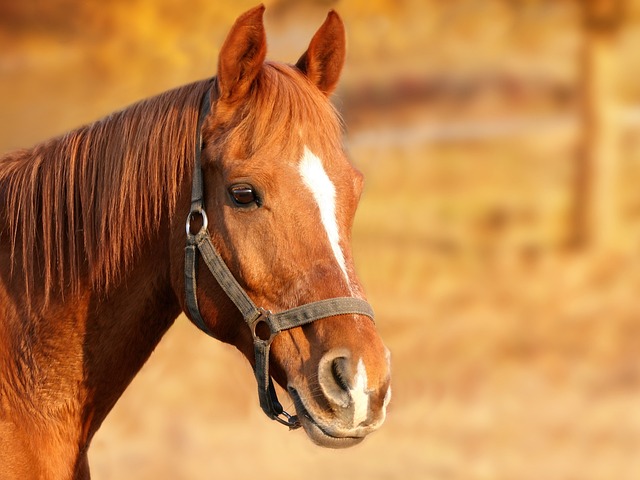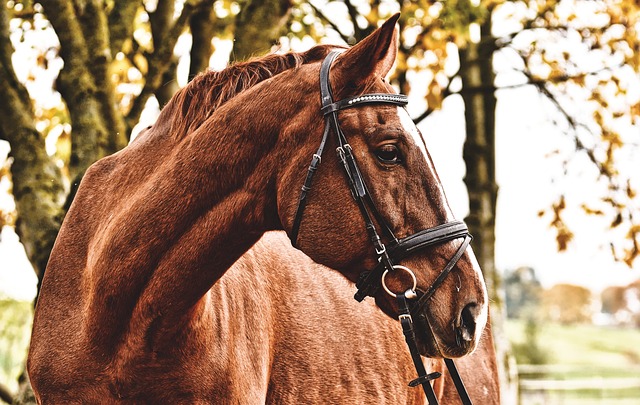When selecting a horse lead rope, such as a custom horse rope, it's crucial to consider materials and design for both safety and comfort during training or handling. Superior options include high-quality natural fibers like cotton, durable synthetic strands like nylon and polyester, and traditional leather, each with distinct advantages. Cotton offers softness and ease of handling, suitable for young or sensitive horses but may require frequent maintenance due to moisture sensitivity. Hemp, on the other hand, is ideal for larger or strong-pulling horses, offering greater strength and resistance to water. Nylon provides excellent durability, resisting abrasion and sudden movements without breaking, while polyester stands out with superior UV and moisture resistance. Leather, known for its adaptability and natural properties, offers a precise fit and consistent performance. All these materials can be tailored into custom horse ropes to match the unique needs of both rider and equine, ensuring effective communication and control. The best lead rope will balance durability with comfort, enhance grip, and come in a variety of sizes and colors for personalization, making it an indispensable tool for any serious equestrian.
When it comes to ensuring the safety and comfort of your equine companion, the choice of material for a horse lead rope is paramount. This article delves into the myriad options available, from natural fibers to synthetic materials and leather, each offering unique advantages tailored to different needs in various equestrian activities. Whether you’re navigating the trails or competing in shows, understanding the qualities of cotton, nylon, polyester, and leather lead ropes will guide you in selecting the most suitable horse rope for your partner in motion. Explore the nuances of each material and discover how a custom horse rope can be the perfect fit for your specific equestrian endeavors.
- Understanding the Essentials of a Quality Horse Lead Rope
- Natural Fiber Options: Pros and Cons of Cotton and Rope Lead Ropes for Horses
- Synthetic Materials: The Durability and Comfort of Nylon and Polyester Horse Lead Ropes
- Leather Lead Ropes: A Timeless Choice for Equestrian Training
- The Advantages of Custom Horse Ropes: Tailoring to Your Equine Partner's Needs
- Selecting the Best Material for Your Trail or Show Horse Lead Rope
Understanding the Essentials of a Quality Horse Lead Rope

When selecting a horse lead rope, it’s crucial to consider materials and design elements that ensure safety, comfort, and longevity for both the handler and the equine. A high-quality horse lead rope, such as those crafted in a custom horse rope, typically features durable, yet supple materials like natural fibers or synthetic strands. These materials not only withstand the elements but also provide a secure grip that won’t chafe or injure the horse. The length and flexibility of the rope also play significant roles; it should offer enough slack to allow natural movement while maintaining a manageable length for effective communication between horse and rider. Additionally, the rope’s construction, including its core and coating, affects its performance and lifespan. A well-made horse lead rope will have a braided design that resists tangling and kinking, ensuring a smooth and safe experience during training or leading. When it comes to customization, horse owners can choose from various colors, patterns, and lengths to suit their specific needs and preferences, further enhancing both the aesthetic appeal and functionality of the rope in their equestrian activities. The choice of a reliable horse lead rope is not merely about preference; it’s a fundamental decision that impacts the daily handling and training of your horse, making it an essential aspect of equine care and management.
Natural Fiber Options: Pros and Cons of Cotton and Rope Lead Ropes for Horses

When selecting a horse lead rope, natural fibers such as cotton and hemp are often favored for their comfort and performance. Cotton horse lead ropes offer a soft, pliable option that is both lightweight and easy to handle. They provide a level of give that can be gentle on a horse’s mouth and chin, making them suitable for sensitive or young horses. The pros of cotton include its affordability and the fact that it does not stretch, ensuring the handler maintains precise control. However, cotton is also subject to environmental factors like moisture, which can cause it to lose its shape or become heavy when wet. Additionally, while durable, cotton fibers may eventually fray or wear out over time, necessitating replacement.
Hemp horse lead ropes present a different set of advantages and trade-offs. They are known for their superior strength compared to cotton, which makes them an excellent choice for larger horses or those with a tendency to pull hard against the rope. Hemp is also more water-resistant than cotton, retaining less water and drying faster, which can be beneficial in wet conditions. The cons of hemp include its initial cost, typically higher than cotton, and a slightly stiffer texture that may take some getting used to for both handler and horse. However, the longevity of hemp makes it a cost-effective choice over the long term, as it is less likely to fray or break with regular use. Both cotton and hemp custom horse ropes can be tailored to the specific needs and preferences of horse and rider, enhancing the safety and effectiveness of groundwork exercises. When considering a natural fiber lead rope, it’s important to weigh the material properties against the needs of the horse and the handling requirements of the rider to ensure the best fit for your equine companion.
Synthetic Materials: The Durability and Comfort of Nylon and Polyester Horse Lead Ropes

When selecting a horse lead rope, both durability and comfort are paramount to ensure effective communication with your equine partner and to maintain safety during training or routine handling. Among the various materials available for custom horse ropes, synthetic fibers like nylon and polyester stand out for their robust performance and pleasant feel.
Nylon horse lead ropes are a popular choice for their exceptional durability and resistance to abrasion. This material can withstand the rigors of daily use without showing signs of wear and tear quickly. Nylon’s flexibility and strength make it an ideal candidate for a horse rope, as it can handle sudden movements or pulls without snapping. Moreover, its smooth texture minimizes the risk of chafing against the horse’s skin, which is particularly important around sensitive areas. The versatility of nylon allows for various custom horse rope designs, from simple single ropes to more complex braided options that cater to different preferences in grip and feel.
Polyester, another synthetic material used in custom horse ropes, offers similar benefits to nylon but with additional advantages. Polyester is known for its superior resistance to UV rays and moisture, which means it maintains its integrity even when left outside or used in wet conditions. This resistance to environmental factors not only prolongs the lifespan of the rope but also prevents it from becoming slippery or heavy when wet. The smooth, glossy finish of polyester horse lead ropes enhances grip, ensuring that handlers can maintain a firm yet gentle hold even in challenging weather conditions. Additionally, polyester’s elasticity contributes to a more comfortable experience for both the handler and the horse, as it reduces the impact of sudden movements and absorbs some of the shock. Whether you opt for nylon or polyester, both materials are excellent choices for a reliable and comfortable horse lead rope that can be customized to suit your specific needs and preferences.
Leather Lead Ropes: A Timeless Choice for Equestrian Training

When it comes to equestrian training, the material of the horse lead rope plays a pivotal role in both the horse’s comfort and the rider’s control. Among the various options available, leather lead ropes stand out as a timeless choice for their durability, comfort, and versatility. Leather, with its natural give and resistance to wear and tear, offers an exceptional grip and can be molded to fit both the horse’s neck and the rider’s hand perfectly. This makes it an ideal material for custom horse ropes, where each rope can be tailored to the unique needs of the horse-rider pair. The quality of leather ensures that it withstands the elements, maintaining its integrity over time, which is essential for consistent training sessions. Furthermore, the tactile feedback provided by a leather lead rope allows for subtle cues and better communication between the rider and the horse, enhancing the training process. For those looking for a durable, reliable, and comfortable option in their equestrian gear, a well-crafted leather horse lead rope is an investment worth making. It’s no wonder that many seasoned riders prefer leather for its tried and tested performance, making it a staple in the world of equestrian sports.
The Advantages of Custom Horse Ropes: Tailoring to Your Equine Partner's Needs

When it comes to ensuring the safety and comfort of your equine partner during training or everyday handling, the material and design of a horse lead rope play a crucial role. A custom horse rope is not merely an accessory; it’s a tailored solution that caters to the unique needs of both you and your horse. Unlike one-size-fits-all options, these ropes are crafted with specific attributes in mind, such as the flexibility of the material, the durability required for your horse’s temperament, and the length that facilitates effective communication without causing discomfort or restraint that is too tight or too loose.
Selecting the right material for a custom horse rope, such as nylon webbing or leather, can enhance grip and control, which are essential for managing your horse effectively in various environments and situations. Nylon, for instance, offers a balance between strength and lightweight flexibility, making it a popular choice for riders who engage in activities that demand responsive handling. Leather, on the other hand, provides a traditional option with superior feel and durability, suitable for horses that respond well to a more tactile approach. The advantage of a custom horse rope is that it can be engineered with the right amount of give or rigidity, ensuring that it complements your horse’s movements without hindering them. This personalized touch in your equipment not only contributes to a safer and more enjoyable experience for both you and your horse but also reflects a deeper understanding of their specific needs and behaviors.
Selecting the Best Material for Your Trail or Show Horse Lead Rope

When selecting the best material for your trail or show horse lead rope, it’s crucial to consider durability, comfort, and ease of handling. A high-quality horse lead rope, such as a custom horse rope, should be crafted from materials that withstand the rigors of regular use without compromising on the feel and fit for both you and your equine partner. Natural fibers like cotton or synthetic materials like nylon and polyester are popular choices due to their blend of strength and flexibility. For instance, a cotton rope may offer a traditional and soft touch but could require more frequent maintenance to prevent fraying compared to synthetic options. Nylon and polyester, on the other hand, provide superior resistance to wear and tear, maintaining their integrity over time, which is particularly beneficial for show horses where appearance and professional presentation are paramount. Additionally, these materials often come in various sizes and colors, allowing you to customize your horse rope to suit your specific needs or to align with your competition attire. Regardless of the material you choose, ensure it feels comfortable in your hand and that it is neither too slick nor overly absorbent, as both can affect control during training or showing. The best horse lead rope is one that complements your leadership technique while ensuring the safety and well-being of your horse.
In conclusion, selecting the most suitable horse lead rope is a decision that blends the demands of functionality with the preferences of both the equine and their handler. Natural fiber options like cotton and rope present eco-friendly choices, offering a balance between durability and comfort. Synthetic materials such as nylon and polyester in horse lead ropes provide enhanced strength and resistance to environmental factors, making them ideal for various conditions. Leather lead ropes, a traditional favorite, offer a classic touch while delivering consistent performance in training. For those seeking personalized solutions, custom horse ropes cater to specific needs, ensuring the perfect fit and feel for your equine partner. Ultimately, the best horse lead rope is one that aligns with your horse’s comfort, your handling preferences, and the activities you engage in, whether it be for trail rides or competitive shows. With a comprehensive understanding of each material’s attributes, equestrians can confidently choose the ideal horse rope to enhance their bond and experience with their horses.
